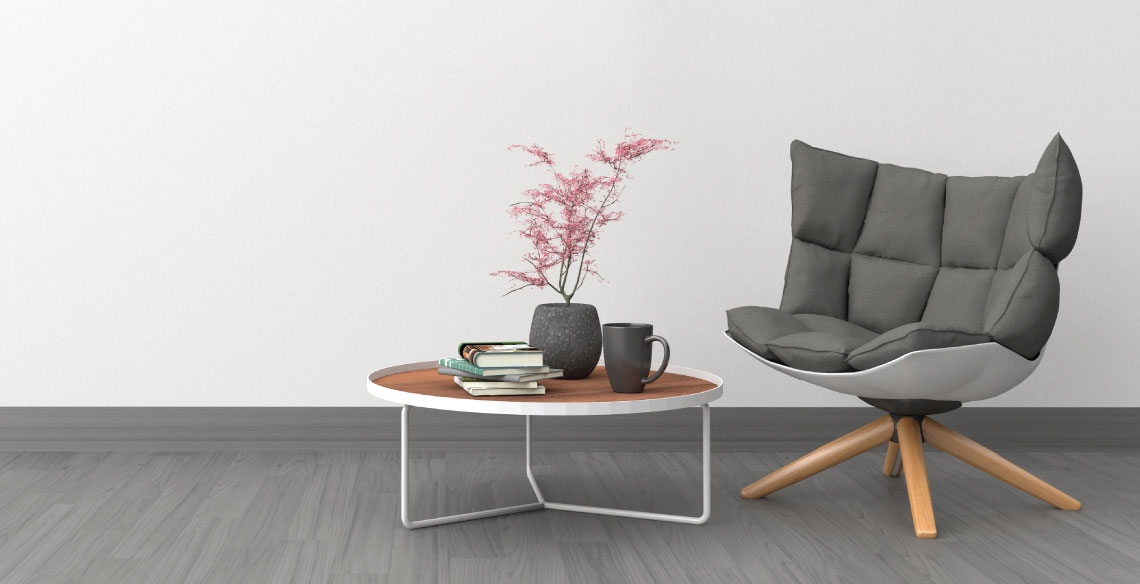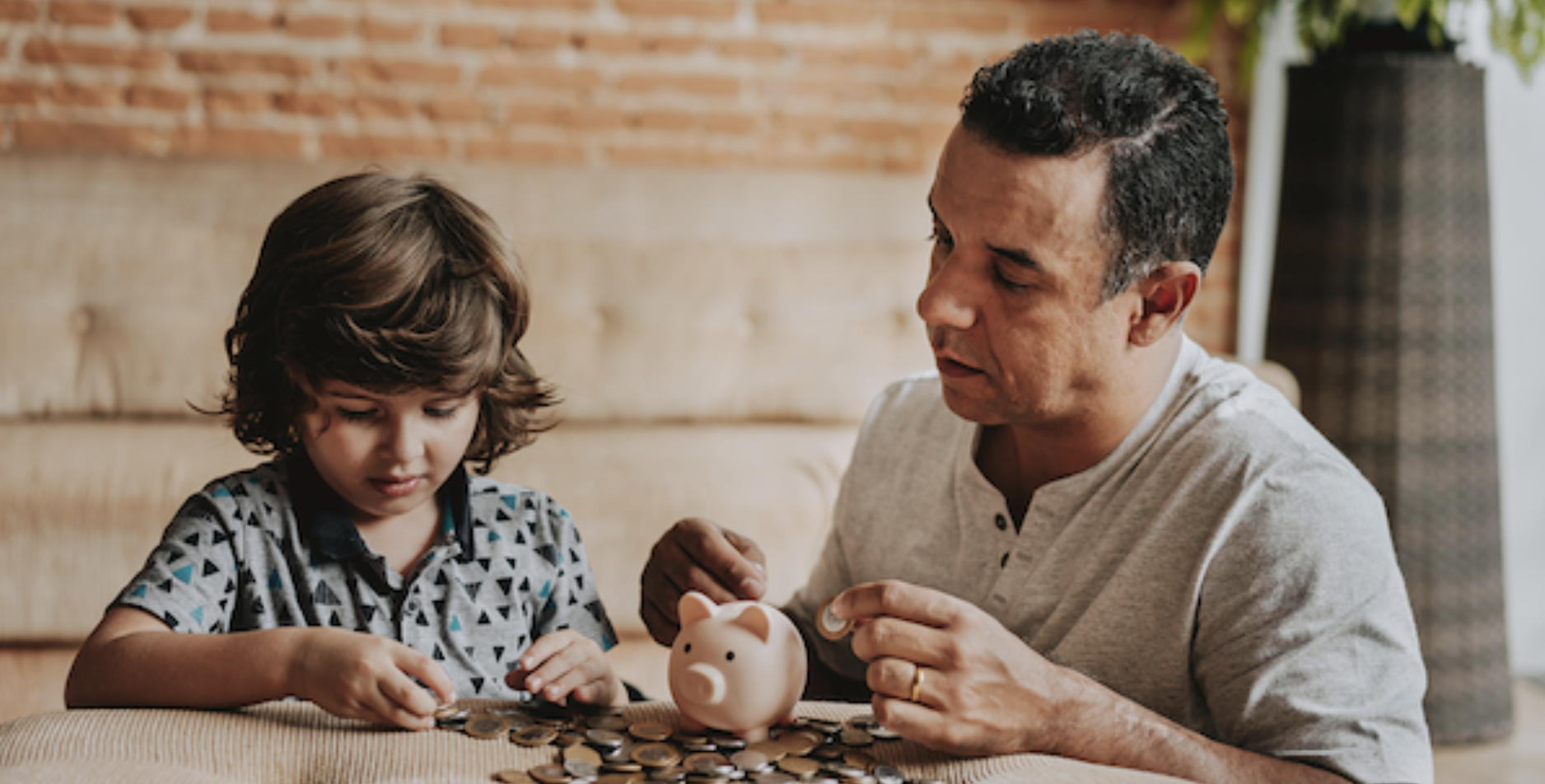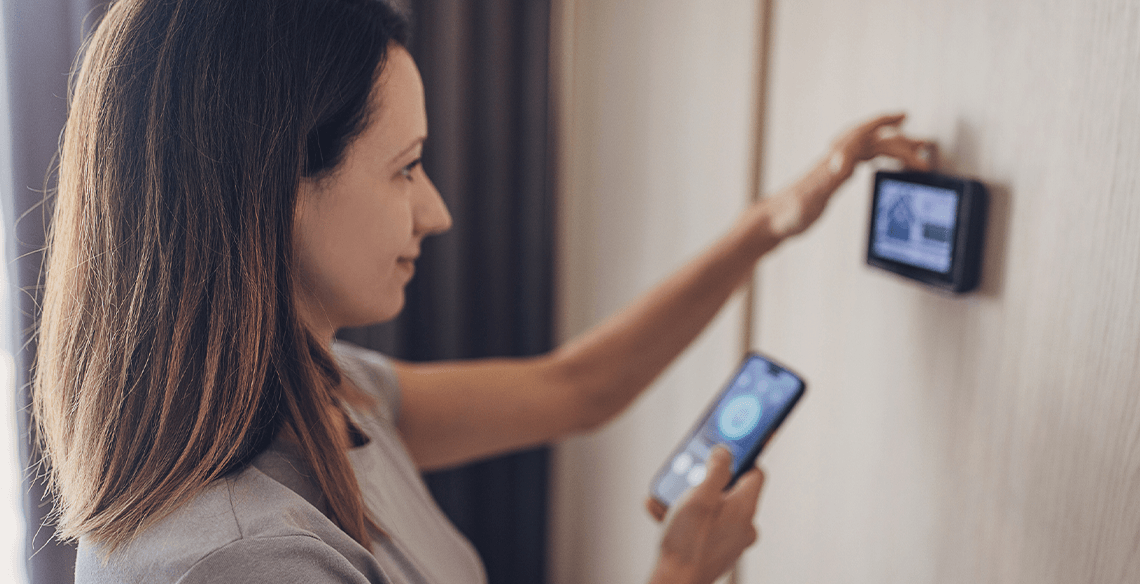When many people hear about minimalism, they often think of stark white rooms with little furniture; personal deprivation from the things they enjoy; and living a life of constant frugality. According to Joshua Becker, a minimalism expert, blogger and New York Times and USA Today best-selling author, minimalism – in its purest definition – isn’t about any of these things. It’s about freeing up your life to do more of the things you value most and removing everything that distracts from that.
The history of minimalism
Becker says minimalism has its beginnings in religion and has been around for centuries. Throughout time, most respected religious leaders have talked about the pitfalls of materialism. Henry David Thoreau’s 1854 classic “Walden” is a memoir that chronicles Thoreau’s two years, two months and two days of living simply in a cabin at Walden Pond near Concord, Mass. More recently, author Duane Elgin’s “Voluntary Simplicity,” published in 1981, has been lauded as the “bible” of the simplicity movement by The Wall Street Journal, and helped generate more recent interest in the movement.
The term minimalism has its roots in art, design and architecture and represents a pared-down design aesthetic. It gained popularity in the United States during the 1960s and ‘70s, and according to Becker, has morphed into a term used to describe the ideas surrounding simple living.
Becker says there has been an increased interest in minimalism, especially over the last 10 years, as society reacted to the implications of the Great Recession. For many people, they had no choice but to downsize and re-evaluate their priorities. When Becker started writing about minimalism 10 years ago, there were just a handful of authors. Now there are hundreds of bloggers, and the movement has sparked interest in everything from tiny homes to being more environmentally conscious.
Becker believes the millennial generation and technology have also influenced and enhanced the idea of simple living. In regard to technology, the smartphone allows us to carry and share items like books, pictures and music without the need to own physical items, helping to reduce some of the clutter in our daily lives. The sharing economy – think Uber, Lyft and Airbnb – makes the need for ownership less important, freeing us from the need to acquire more and more stuff.
As far as millennials, technology is wired into them, and as a generation they tend to have more interest in environmentalism, conservation and consuming less. They also came of age during one of the worst economic periods in American history, graduating with more debt and fewer employment opportunities. Many merely do not have the resources to adopt a lifestyle of endless consumption, and those that do have above-average salaries are often opting to save more and live a simpler lifestyle. A recent survey by Harris Poll and Eventbrite found that 78 percent of millennials would prefer to spend money on experiences rather than stuff, compared to 58 percent of baby boomers.
Why become a minimalist?
Becker was turned on to the idea of minimalism in May 2008 when he was complaining to his neighbor about the hassles of cleaning out his garage. The neighbor commented that her daughter was a minimalist and maybe he should consider getting rid of some of the items he no longer needs or uses. “I was looking at all this stuff piled in my driveway, all dirty and dusty,” Becker said. “From the corner of my eye I saw my son swinging alone on the swing set in the backyard, and suddenly I had this realization that everything I owned wasn’t making me happy, but even worse, everything I owned was taking me away from the very thing that did bring me happiness and purpose and fulfillment in life.”
Phillip Liebold, loan support specialist for Arizona Federal Credit Union, doesn’t consider himself a minimalist, but he and his wife have embraced the concept of simple living. For him, he saw other people – friends and family members – burdened by excess stuff, and he has seen how having unwanted and unneeded items can impact him.
“Anytime I set something aside to deal with later, I am writing a check to my future self for time,” Liebold said.
In response to this way of thinking, Liebold has stopped newspaper and magazine subscriptions because they were piling up and he realized the time commitment he would need to deal with the magazines. He’s also careful about bringing new items into his home. One question he asks himself, either when he’s thinking about purchasing an item or cleaning out old items, is “Does it give me joy?” It’s a concept he learned about from Marie Kondo, best-selling author of “The Life-Changing Magic of Tidying Up.” Her method of organizing involves gathering all items you own by category (clothing, books, photographs, etc.) and only keeping those items that spark joy inside you.
For Liebold, there are also environmental concerns that motivate him to live simply. He recycles as much as he can and tries to reduce the impact he is leaving on Earth. He doesn’t like the idea that his junk and trash will be around for thousands of years after he is gone.
Both Liebold and Becker cite countless benefits to living in a minimalistic fashion.
“Once my wife and I realized how much of a burden stuff is – in time and money and energy and stress and distraction – we started to realize the fewer things we own, the more time we have to devote to the things we are most passionate about,” Becker said.
According to Liebold, living simply also has tremendous financial benefits. He spends less on gas, insurance and maintenance because he and his wife own one car. He’s been able to complete a master’s degree without the burden of additional debt. In addition, a simpler lifestyle has allowed him and his wife to save for things that are more important to them, like travel and retirement.
“If we continue to live more simply in the future, the money we have saved should go further,” Liebold added.
So do you want to be a minimalist?
The overarching theme of minimalism is the concept of intention. It’s knowing what you value and what you want to accomplish in life, and then removing the distractions that are getting in the way of living the life you have imagined. Not surprisingly, this means living as a minimalist will look differently for everyone since we all have different interests and passions.
For one person, that could mean selling everything you own and traveling the world. For someone else minimalism might mean moving into a tiny home and reducing your physical imprint on the planet. There is no right or wrong answer.
For most of us, there is probably a happy middle ground. If you’re raising a family, selling all of your worldly possessions so you can explore the globe isn’t really practical – at least not at this point in your life. Start with defining your intention and building from there. Do some research online, pick up a book on the subject and check out one of the many countless blogs. Before you know it, you could be living a life with a clearer purpose, less stress, less stuff and more financial resources for the things that matter most to you and your family.



